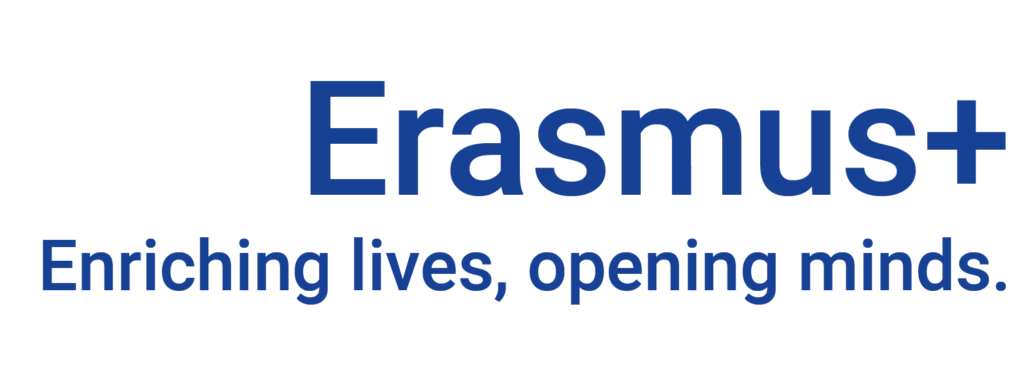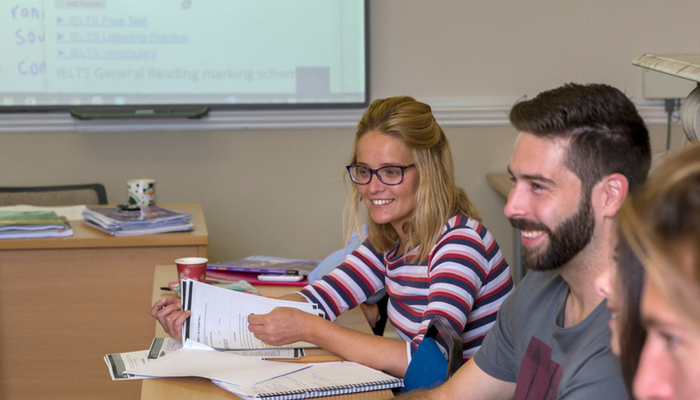Erasmus+ Mobility for Teachers: Top 10 Most Asked Questions and Answers
- Erasmus+ Mobility for Teachers: Top 10 Most Asked Questions and Answers
- 1. What is Erasmus+ Mobility for Teachers?
- 2. Who can Apply for Erasmus+ Mobility?
- 3. What Types of Activities can be Funded Under Erasmus+ Mobility for Teachers?
- 4. How does the Application Process Work for Erasmus+ Mobility for Teachers?
- 5. What Costs of the Erasmus+ Mobility for Teachers are Covered by the Erasmus+ Program?
- 6. How long can an Erasmus+ Mobility for Teachers Last?
- 7. What are the Benefits for Teachers of Participating in Erasmus+ Mobility?
- 8. How can Schools Ensure a Successful Mobility Experience for Teachers?
- 9. What Challenges might Teachers Face During Erasmus+ Mobility?
- 10. How can Teachers Maximize the Impact of their Erasmus+ Mobility Experience?
- Conclusion

The Erasmus+ program, funded by the European Union, is a unique initiative that has been transforming education across Europe and beyond, and Ireland is no exception. It offers a range of opportunities for teachers to enhance their skills, exchange knowledge, and experience different educational cultures through mobility projects.
However, for many educators, the Erasmus+ program can be both exciting and daunting. To help you navigate this opportunity, here are the answers to the top 10 most asked questions about Erasmus+ Mobility for teachers.
1. What is Erasmus+ Mobility for Teachers?
Erasmus+ Mobility for Teachers is a part of the broader Erasmus+ program, specifically designed for educators, school staff, and educational institutions. It allows teachers to participate in professional development activities abroad, such as training courses, job shadowing, teaching assignments, or collaboration with colleagues from different countries.

The program aims to:
- Enhance the professional skills of teachers.
- Promote innovative teaching methods.
- Foster international collaboration and cultural exchange.
- Improve the quality of education across Europe.
Participating in Erasmus+ Mobility can offer teachers invaluable experiences, making them more effective in their roles and enriching the learning environment in their institutions back home.
2. Who can Apply for Erasmus+ Mobility?

Erasmus+ Mobility is open to a broad range of educational staff, including:
- Teachers and trainers at all levels of education (primary, secondary, vocational, adult education, university etc.).
- School administrators and leaders.
- Non-teaching staff involved in the education process, such as counsellors or librarians.
To apply, the applicant must be employed by an educational institution that is part of the Erasmus+ network. The application is usually submitted by the institution on behalf of the teachers or staff members, not by individuals directly.
3. What Types of Activities can be Funded Under Erasmus+ Mobility for Teachers?
Erasmus+ Mobility for teachers funds a variety of activities aimed at professional development. These include:
Structured Courses or Training Events
Teachers can attend structured courses or training sessions abroad that align with their professional development goals. Examples of these in Ireland include courses focused on teaching methodology, digital skills, sustainability, inclusivity, wellbeing and language learning.
Job Shadowing
This involves spending time at a host institution in another country, observing teaching practices, and gaining insights into different educational systems.
Teaching Assignments
Teachers may take on temporary teaching assignments at partner institutions abroad, allowing them to share their expertise and learn from colleagues in different educational environments.
Participating in Professional Networks and Events
Teachers can attend conferences, seminars, or workshops that are relevant to their professional growth.
4. How does the Application Process Work for Erasmus+ Mobility for Teachers?
The application process for Erasmus+ Mobility typically involves several steps:
Identification of Needs
The first step is for the educational institution to identify the professional development needs of the teachers and the institution. This forms the basis of the mobility project.
Preparing the Application
The educational institution prepares a detailed application outlining the objectives, activities, and expected outcomes of the mobility project. This includes selecting partner institutions or training providers in Ireland and detailing how the mobility will benefit both the individual participants and the institution as a whole.
Submission
The application is submitted to the National Agency of the applicant’s country. Deadlines vary by country and by type of mobility activity. Here is a link where you can find contact details for National Agencies for all participating countries.
Evaluation
Applications are evaluated based on criteria such as relevance, quality of design, and expected impact. Successful applicants receive funding to cover course fees, travel and subsistence while in Ireland.
5. What Costs of the Erasmus+ Mobility for Teachers are Covered by the Erasmus+ Program?
The Erasmus+ program provides financial support to cover several types of costs associated with mobility. These include:
Travel Costs: A grant is provided to cover travel expenses to and from the host country. The amount is calculated based on the distance between the home and host institutions.
Individual Support: This covers the cost of living, including accommodation, meals, local transport, and insurance, during the stay in Ireland.
Course Fees: If the mobility involves attending a structured course or training, the Erasmus+ grant will typically cover the course fees.
Organizational Support: The program also offers a contribution to the sending institution to help cover the costs of organizing and managing the mobility project.
6. How long can an Erasmus+ Mobility for Teachers Last?
The duration of Erasmus+ Mobility can vary depending on the type of activity:
Short-Term Mobility: Typically lasts between 2 days and 2 months. This is common for job shadowing, training courses, or participation in events.
Long-Term Mobility: Can last from 2 months to 12 months. This is more common for teaching assignments or more extended professional development activities.
7. What are the Benefits for Teachers of Participating in Erasmus+ Mobility?
Participating in Erasmus+ Mobility offers numerous benefits for teachers:
Professional Development
Teachers can enhance their skills, learn new
teaching methodologies, and gain knowledge in their subject areas.
Cultural Exchange
Teachers experience different cultures and educational systems, fostering intercultural understanding and collaboration.
Networking Opportunities
Mobility projects create opportunities for networking with educators from across Europe and beyond, leading to long-lasting professional relationships.
Personal Growth
Teachers often find that mobility projects lead to significant personal growth, including increased confidence, adaptability, and global awareness.
Impact on Students
Teachers bring back new ideas and perspectives from Ireland that can enrich their teaching practices and benefit their students.
8. How can Schools Ensure a Successful Mobility Experience for Teachers?
To ensure a successful Erasmus+ Mobility experience, schools and teachers should consider the following:
Planning: Careful planning is essential. This includes selecting appropriate activities, preparing participants, and ensuring alignment with the school’s strategic goals.
Communication: Open communication between the sending and receiving institutions is crucial for setting expectations, coordinating logistics, and resolving any issues that arise.
Preparation: Teachers should be well-prepared for their mobility experience. This might include language training, cultural orientation, and understanding the educational context of Ireland.
Support: Ongoing support from the home institution is vital. This includes regular check-ins, providing resources, and offering assistance with any challenges that participants may face.
Reflection and Sharing: After the mobility, participants should reflect on their experiences and share their learning with colleagues and students. This helps to maximize the impact of the mobility project.
9. What Challenges might Teachers Face During Erasmus+ Mobility?
While Erasmus+ Mobility offers many benefits, teachers may also face challenges:
Cultural Adjustment
Adapting to a new cultural environment in Ireland can be challenging, particularly if there are language barriers or significant differences in educational practices.
Logistical Issues
Coordinating travel, accommodation, and daily living arrangements in a foreign country can be complex.
Integration into Host Institutions
Teachers may need time to adjust to the new working environment and build rapport with colleagues and students.
Managing Workload
Teachers on mobility might need to balance their participation in the program in Ireland with their regular responsibilities at their home institution, which can be demanding.
Re-entry Adjustments
Upon returning home from Ireland, teachers might experience challenges in integrating their new knowledge and skills into their regular teaching practice.
10. How can Teachers Maximize the Impact of their Erasmus+ Mobility Experience?
To maximize the impact of their Erasmus+ Mobility experience in Ireland, teachers should:
Set Clear Goals: Before embarking on mobility, teachers should set clear professional development goals and align them with their school’s objectives.
Engage Actively: During the mobility, teachers should actively participate in all aspects of the experience, including networking, cultural exchange, and professional learning.
Reflect Continuously: Reflecting on the experience throughout the mobility period helps teachers to internalize their learning and apply it effectively in their practice.
Share and Disseminate Learning: Teachers should share their experiences with colleagues and students through presentations, workshops, or collaborative projects. This ensures that the benefits of mobility extend beyond the individual participant.
Maintain Connections: Teachers should strive to maintain the professional connections made during their mobility. These relationships can lead to future collaborations, joint projects, and continued professional growth.
Conclusion
Erasmus+ Mobility for Teachers is a powerful tool for professional and personal development. By taking part in this program, educators not only enhance their own skills and knowledge but also contribute to the broader educational landscape by fostering innovation, collaboration, and cultural understanding.
While there may be challenges along the way, careful planning, active engagement, and a commitment to sharing knowledge can help ensure a successful and impactful mobility experience. If you are an educator considering Erasmus+ Mobility, now is the perfect time to explore this opportunity and take the next step in your professional journey in Ireland.
